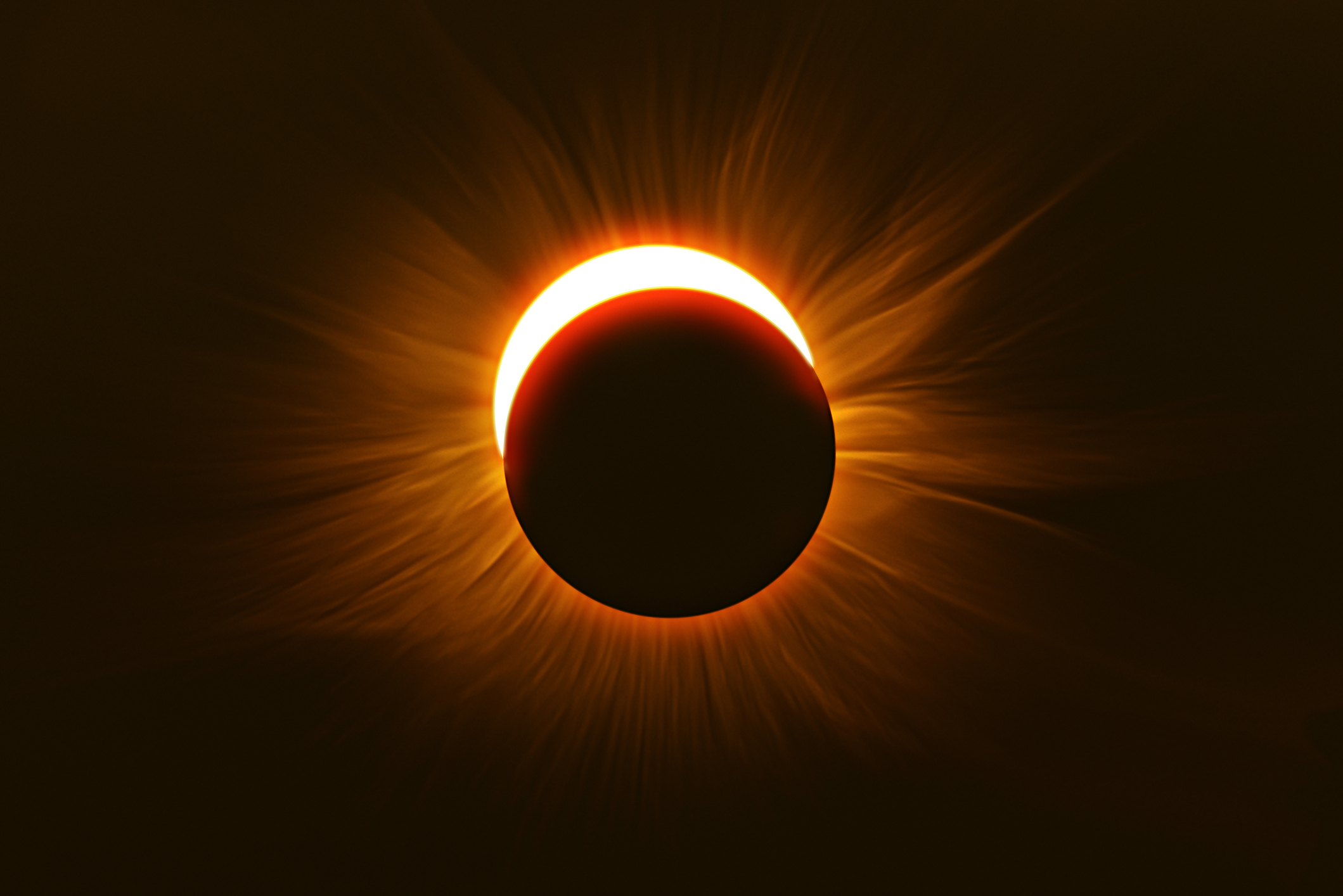Rare hybrid solar eclipse to appear in South Pacific this week


A free daily email with the biggest news stories of the day – and the best features from TheWeek.com
You are now subscribed
Your newsletter sign-up was successful
On Thursday, a rare type of solar eclipse known as a hybrid eclipse will appear in the sky. This is when an eclipse is both a total solar eclipse and a partial solar eclipse at the same time, when normally it is either one or the other. This type of eclipse only makes up approximately 3 percent of the eclipses to occur in the 21st century.
During a total solar eclipse, the moon "covers the body of the sun entirely, leaving only the fiery solar corona visible," while in a partial or annular eclipse, the moon "covers only part of the sun," which is a far more frequent form of the eclipse, Time writes. Whether the viewer will see a total eclipse or a partial eclipse depends on where they are viewing it from. This particular eclipse is traveling across the South Pacific Ocean and those located along its narrow path will see a total eclipse while those around it will see a partial eclipse.
East Timor, Indonesia, and one inhabited town in Australia will be able to see a true total eclipse, while the rest of the South Pacific will see a partial eclipse, LiveScience explains. In addition, in the middle of the Indian Ocean, "two spots will present viewers with the eclipse transitioning from annular to total and back again." Use eclipse glasses when viewing to avoid damage from staring at the sun. The eclipse will also be live-streamed.
The Week
Escape your echo chamber. Get the facts behind the news, plus analysis from multiple perspectives.

Sign up for The Week's Free Newsletters
From our morning news briefing to a weekly Good News Newsletter, get the best of The Week delivered directly to your inbox.
From our morning news briefing to a weekly Good News Newsletter, get the best of The Week delivered directly to your inbox.
The next hybrid solar eclipse will occur on Nov. 14, 2031, over North America. But the next total solar eclipse over North America will take place on April 8, 2024.
A free daily email with the biggest news stories of the day – and the best features from TheWeek.com
Devika Rao has worked as a staff writer at The Week since 2022, covering science, the environment, climate and business. She previously worked as a policy associate for a nonprofit organization advocating for environmental action from a business perspective.
